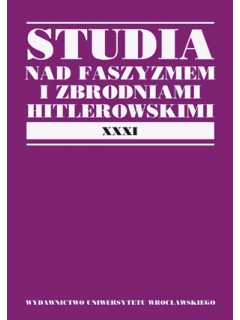

Artykuły

PROPERTY AND CLASS IN LEV DAVIDOVICH TROTSKY’S DOCTRINE
Lev Davidovich Trotsky was one of the main creators and then dissidents of the Soviet Russia. Apart from his adopted political stance, he was throughout his whole life developing his own concept of permanent revolution which constituted his original input to Marxist philosophy. The author attempts to define the ideas of property and class the latter was inextricably linked with the former present in Trotsky’s thought and to demonstrate the differences in his perspective existing in this respect in the pre- and post-revolutionary periods. The concept of permanent revolution remains rooted in Marxian vision of revolution understood as a change of social-and-economic formation on the global scale. It concerns the possibility of revolutionary process in socially and economically backward countries where the numerous and organized proletariat is non-existent. Trotsky follows Marx in his interpretation of revolution as a class struggle. However, he also emphasizes the political dimension of this conflict and indicates that the negation of current social system based on private ownership of the means of production and the call for their socialization including nationalization lies at the core of revolutionary process. Lev Davidovich, in accordance with Marxian tradition, sees property as a state of having certain good at the factual disposal in the economic sense. It does not matter which particular legal form the form of private property or the form of limited property rights reflects this economic power. Such definition of property forms for Trotsky the foundation for his class analysis of society. The appurtenance to certain class is dependent on the individual’s relation to the ownership of the means of production. The most fundamental social antagonism is the conflict between the haves and the have-nots. Transplanting his considerations to the realm of post-revolutionary society’s analyses, Trotsky adopts a juridical perspective. He claims that since the means of production are owned by the state, the Soviet Russia remains workers’ state in transitional period from capitalism to socialism. The author of this article believes that this change of perspective was a result of Trotsky’s acceptance, after 1917 revolution, of party as an institution which is indispensable to lead revolution and which is an emanation of working class not a class in itself and not a separate proprietor.
Translated by Paweł Sydor